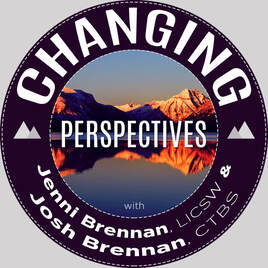Changing Perspectives Blog |

Any guesses as to what I'm describing? NFL games? Red Sox vs. Yankee games? NHL playoffs? Nope. Youth sporting events. Youth. Kids. People who are just as close in age to being toddlers as they are to being adults. Our children. Let that all sink in. Re-read it. This is some of what I have been seeing over the past year at children's baseball, football and basketball games. Is it a list to be proud of? If the list is followed by a title like "Undefeated" or "Champs" does that make the list more acceptable? This post will be as difficult for some to read as it was for me to write. There is a distinct possibility that my words will offend some people. I apologize in advance. I can guarantee some people will find my view too soft; too social worker-y; too unrealistic. I am asking you to hold up the proverbial mirror and take a good, long, critical look at yourself as parents of children in youth sports. Honest self reflection is not easy; it is hard, painful work. Let me be the first to publicly and openly admit that I am guilty of some of the items I've listed. Negativity can be a catchy little bugger and I have found myself quickly sucked into the negativity vortex on more than one occasion. While I am being honest, I should admit that I have probably sometimes been the start of the negativity. But, I'm not proud of it. I can do better. All of us can do better. What would youth sports look like if we all practiced some of the following strategies? Be Proud, Not Boastful I get it. There are moments where we want our children to feel like they are the best. In our eyes, they are the best. Besides, there will always be someone who is the best so why shouldn't it be our own child? Of course we are filled with pride when our child makes the varsity squad or an all star team or has the best stats. We should absolutely share that pride with the world! But, can we find a way to express pride in our children without putting down someone else's child? Can we teach our children to be proud of themselves without being arrogant? Can we be a bit more mindful about HOW we express our pride? Can we help our children to win with grace and dignity? Do we really need to pit our children against each other? Where will that lead them as they move through the really difficult parts of their childhood and adolescence? Let it Go It seems that our social media accounts have become the high school cafeteria for adults; ripe with mean girl behavior and teasing. Passive aggressive memes and posts litter our social media feeds, often under the guise of being funny, insightful or interesting comments and quotes. If we are being honest, though, sometimes they are nothing more than hurtful jabs at other parents and coaches. Will we tolerate such behavior from our own children in a few years on social media? I hope not. So, why do we allow ourselves to stoop so low now? Why do we tolerate it from our own friends when we see it? We are not going to like everyone and not everyone is going to like us. People will push our buttons and make us feel crazy, for sure. It's our jobs as the grown ups to find a way to cope with those feelings in a positive and respectable manner. We have to be the role models - even when we don't want that job. Point out the Positive Negativity spreads like wild fire. One coach, parent, ump or child with negative energy can set off a chain reaction of negativity and soon everyone has it. You know what it looks like. Slumped shoulders. Eye rolling. Head shaking. Slamming things. Muttering under breath. It happens. But, do you know what else spreads like wild fire? Positivity. It's ok to cheer on 8, 9, 10, 11 and 12 year olds. It really is. Yes, even after they make a mistake - even a huge mistake. You can still find something positive to say in most circumstances. Despite what some people say, I firmly believe that building up our children will NOT create a generation of helpless, spineless, whine bags. Inspire Improvement I would never advocate only pointing out the positive and I am not advocating for participation trophies for everyone. We should absolutely be providing our children with clear and constructive feedback as we help them to be better versions of themselves. How can you encourage them to reach their goals? Can we do it without demeaning them in front of everyone? What if we were all a bit more thoughtful about how and when we provide such feedback to our children? When are we doing it out of anger and frustration versus the result of thoughtful consideration? Winning Isn't Everything Sometimes it isn't about the winning at all. Sometimes some of life's greatest lessons come from the loss. Sure, state, district and national titles would all be amazing. But, if you are being honest, how much would they really truly matter to our children in 10 years? Will such things define them? Will they define us? If so, what does that mean about us? Remember that They are Kids We are raising children in a much different world and a much different time than when we were children. Today's children have a lot on their plates and while they may never have to walk uphill in the snow barefoot for two miles each way to get to school like we had to do, their lives are plenty hard enough right now. They are still children. Quite a few of them still hold tight to the stories of Santa Clause and the Tooth Fairy. Would it be terrible to let them just have fun and enjoy their youth? Would it be ok for them to enjoy the game, even if they lose? Bruce Brown and Rob Miller, founders of Proactive Coaching, LLC, found in their research that most children just want to hear parents tell them "I love to watch you play." That's it. They don't want positive or negative feedback after a game; they just want to be children. Their research also found that for many children their least favorite part of a sports game was the ride home with their parents (Henson, 2012). Think about it - what gets said in the car after your children's games? There is ample research out there today about the outcomes of youth sports. Do you know what a lot of the research suggests? According to Merkel (2013), analysis of multiple youth sports studies found that participation in youth sports is neither inherently good or bad for our children. Rather, whether our children's participation in youth sports turns out to be a good thing for them depends on a variety of factors. Peers, parents, coaches and even society and the media can heavily influence whether youth sports are positive experiences for children. Notice what is missing there - number of wins and losses, level of elite athleticism, number of trophies. We, the adults, have a pretty big impact on whether their participation in sports is a good thing. Maybe we are focusing too much on the wrong things! So, next time you are at your child's game, I encourage you to take a moment and breathe it all in. Look around at what is happening. Remember that they are children and remember the pretty big role you play in youth sports and the impact those sports could have on your child. These days are going to be over soon - for them and for us. How do you want your child to remember these times? How do you want to remember these times? Could we all do better? I believe we can. We should. For us. For each other. For them. References Henson, S. (2012). What make a nightmare sports parent -- And what makes a great one. Retrieved August 1, 2016 from http://www.thepostgame.com/blog/more-family-fun/201202/what-makes-nightmare-sports-parent Merkel, D. M. (2013). Youth sport: Positive and negative impact on young athletes. Open Access Journal of Sports Medicine, 4, 151-160.
1 Comment
Julie Leeber
8/10/2016 06:31:58 am
This was an amazing read. Thank you.
Reply
Your comment will be posted after it is approved.
Leave a Reply. |
About Changing PerspectivesI often find myself encouraging people to consider changing their perspective or reframe the way in which they view things. This blog is an extension of that practice and is also an opportunity for me to write from a number of different perspectives including clinician, educator, mother, friend and supervisor. Blog topics are also quite varied and changeable. Topics explored include, but are certainly not limited to, grief, parenting, health and wellness and relationships. Join me and explore a number of changing perspectives! Categories
All
Archives
April 2020
|

 RSS Feed
RSS Feed



